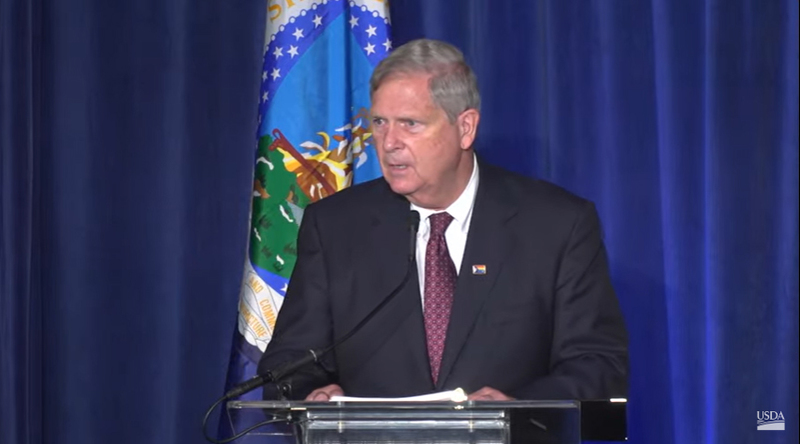
Vilsack Announces Transformation of Food System
On Wednesday, June 1st, the United States Secretary of Agriculture, Tom Vilsack, announced during a speech at Georgetown University that the United States Department of Agriculture (USDA) has a framework set in place to transform the food system. Vilsack stated that, “The pandemic exposed the weaknesses of a food system built around large-volume production and national supply chains,” according to Successful Farming. The framework that is in place will benefit consumers, producers, and rural communities. It will accomplish this through providing more options, increasing access, and creating improved markets for small and mid-size producers.
During Vilsack’s speech, he explained that the USDA will put nearly $3 billion into grants, loan guarantees, and many programs to transform the U.S. food system. Jim Wiesemeyer, a writer for AgWeb.com, explained how the USDA will break up the funding. $650 million in funding and loan assistance will go to meat and poultry processing projects. That includes $250 million that will help entrepreneurs who have trouble getting credit. An additional $100 million will go towards training meat processing workers. Another $600 million is intended to improve food supply chain infrastructure. This includes cold storage and refrigerated trucks, outside of meat and processing.
Additional funding includes: $200 million for fruit and vegetable growers to be able to comply with food and safety regulations, $90 million to reduce and prevent food waste and loss, $155 million to reduce food deserts (through the USDA’s Healthy Food Financing Initiative), $60 million for farm-to-school programs which increase markets for smaller-scale farmers through child nutrition programs, and $400 million to create regional food business centers. The food business centers “will provide coordination and technical assistance and other support to small and mid-size businesses involved in processing, distribution, and aggregation,” according to Wiesemeyer (AgWeb.com).
At the beginning of the COVID pandemic, the USDA significantly invested through its Pandemic Assistance Program to provide immediate relief to producers, food workers, businesses, and others. Now, with the supply chain issues arising because of the Russia/Ukraine War the USDA says that it is apparent that we can not go back to the food system we had pre-COVID. The plan announced to transform our food system was created to build back and strengthen the food system across the supply chain, focusing on how food is produced and purchased, as well as all of the steps between producing and purchasing.
The USDA stated four main goals for their Food System Transformation Plan. First, they will focus on, “Building a more resilient food supply chain that provides more and better market options for consumers and producers while reducing carbon pollution.” This goal was created with the intent of making the food system more distributed and local. This will increase choices of locally made products as well as ensuring food is available to consumers and reducing the climate impact of the food chain. Their second goal is, “Creating a fairer food system that combats market dominance and helps producers and consumers gain more power in the marketplace by creating new, more, and better local market options.” This goal was created to deliver a better deal for farmers, ranchers, growers, and consumers. Currently, just 14 cents of the food dollar go to producers. The third goal is to be, “Making nutritious food more accessible and affordable for consumers.” This is a goal of the food transformation plan because the USDA states that they are “committed to ensuring that every American family has access to affordable, nutritious foods.” Lastly, the USDA’s fourth goal of the plan is, “Emphasizing equity.” This final goal was created to help the people that live in rural and underserved communities, as well as communities that experience persistent poverty with a fair shot to economic opportunity. Most of the food in our food system, water that we drink, and energy we consume comes from communities like this, and the USDA wants to help provide greater economic benefit for people in those communities.